Rambam Hilchos De'os Chapter 2 - Q & A
When Extremes Are Good for You
34 min
Rambam Mishneh Torah Q & A
- July 29, 2020
- |
- 8 Av 5780
Rabbi YY Jacobson
340 views- 1Comment
- Call-in
Listen to the class on the phone
Call +1 (845) 201-1933
When prompted, dial the ID number below.
7655 MP3 MP4 Source Sheets - Copy Embed
Class Summary:
This Q&A segment, is from class in Rambam the Laws of De'os, chapter two, which was presented on Wednesday Parshas Va'eschanan, 8 Av, 5780, July 29, 2020, streaming live from Rabbi Jacobson's home in Monsey, NY
Categories
Rambam Mishneh Torah Q & A
Rabbi YY Jacobson
- July 29, 2020
- |
- 8 Av 5780
- |
- 340 views
Related Classes
Please help us continue our work
Sign up to receive latest content by Rabbi YY
Join our WhatsApp Community
Join our WhatsApp Community


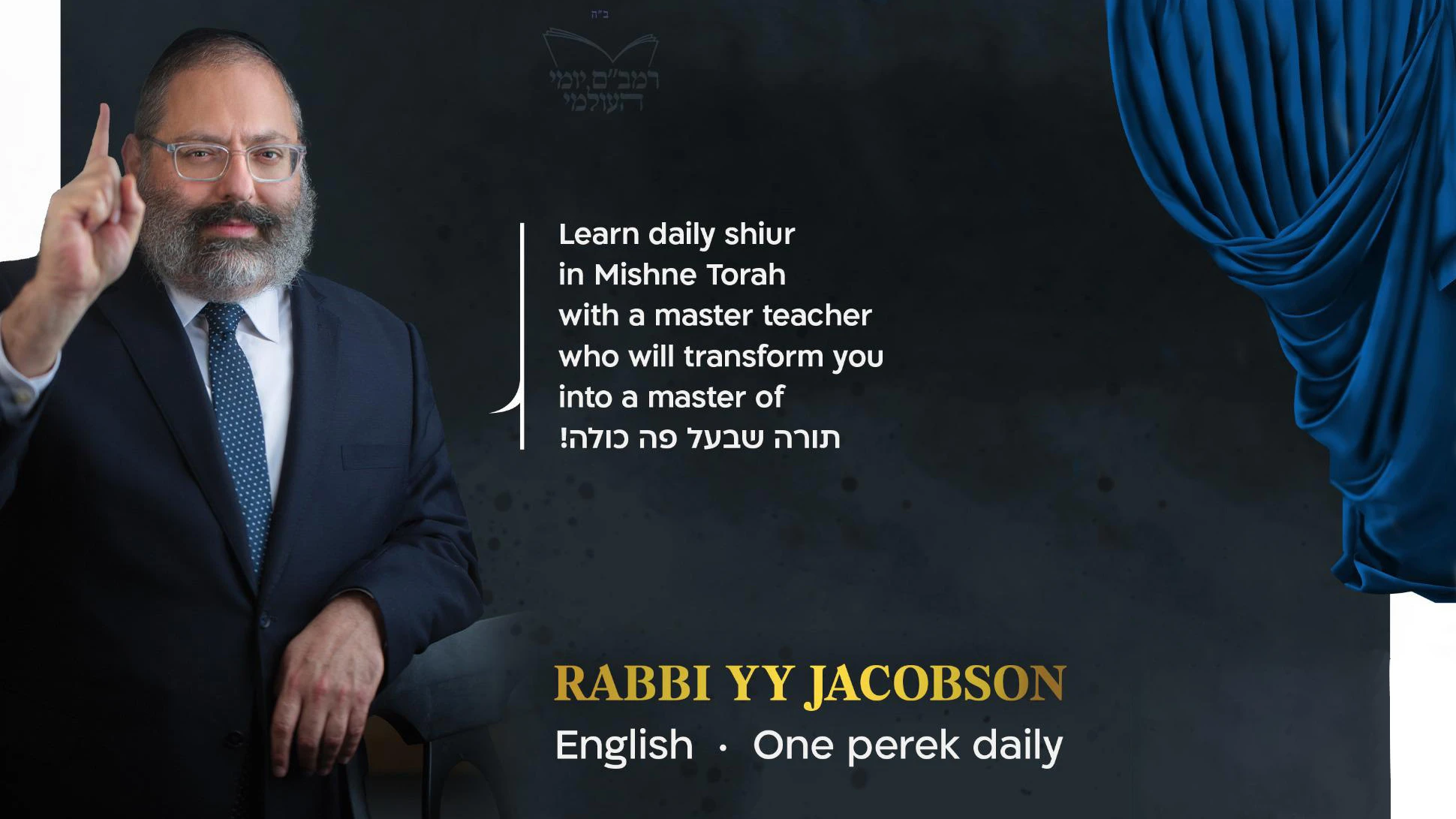
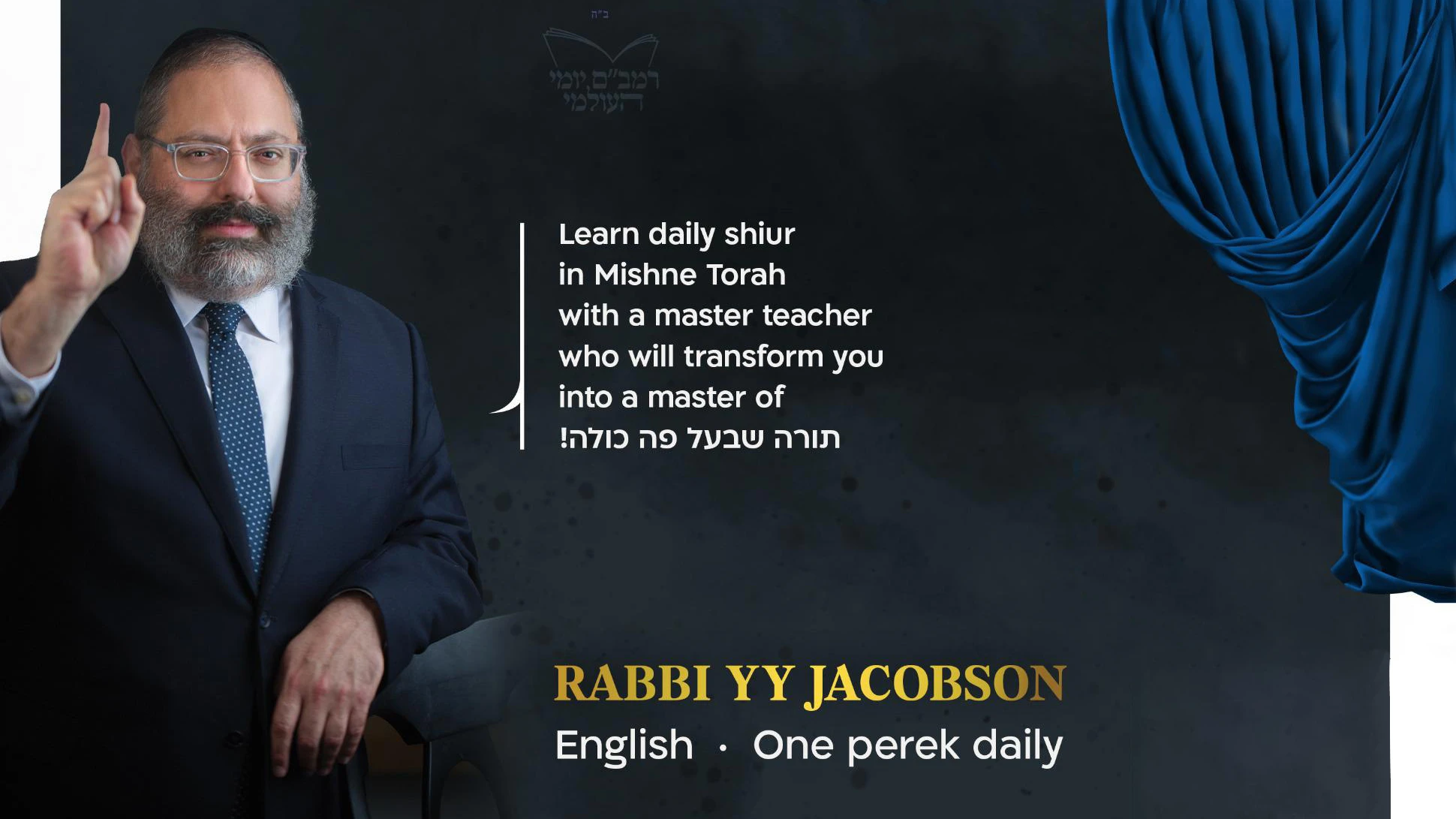
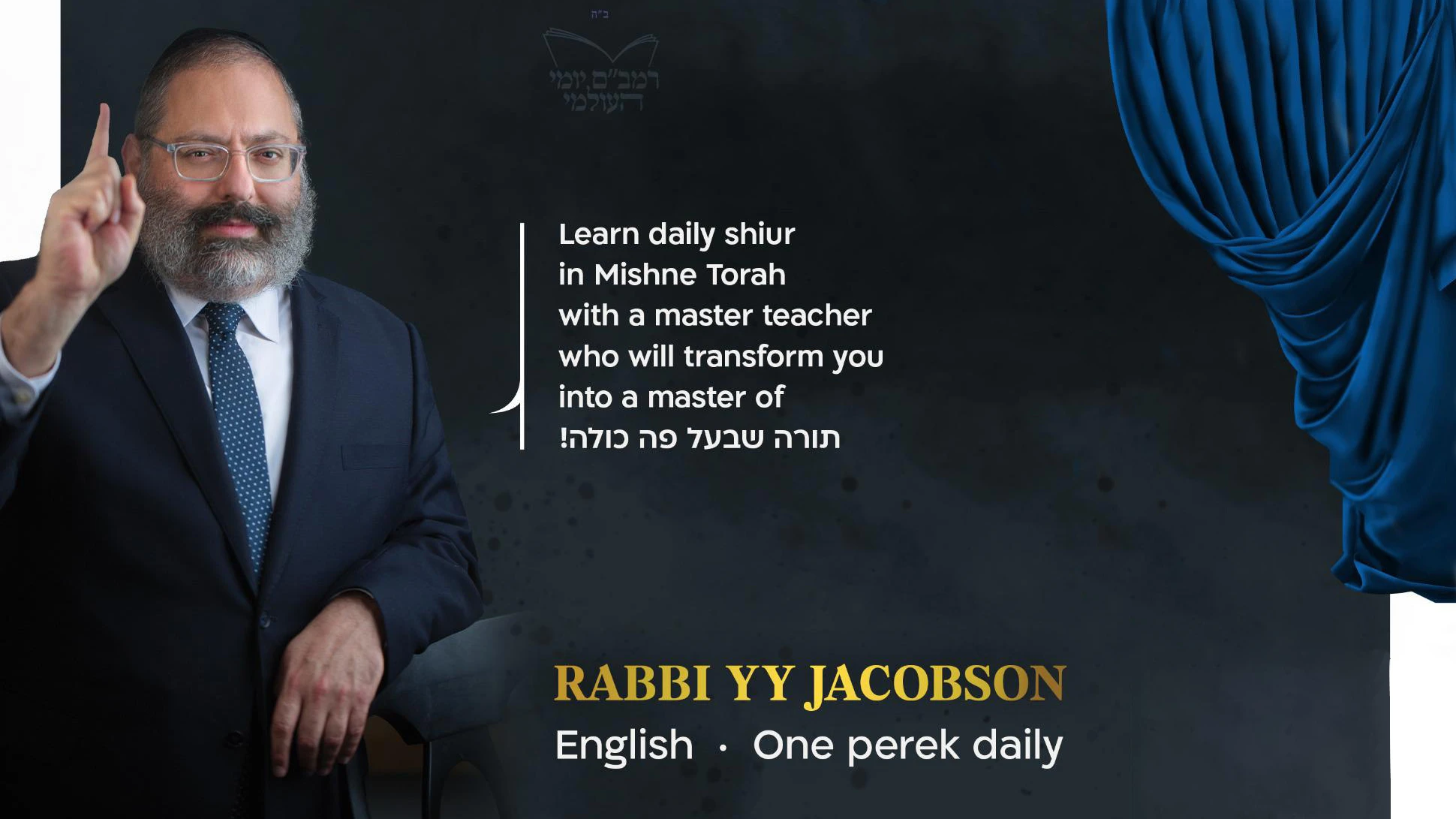
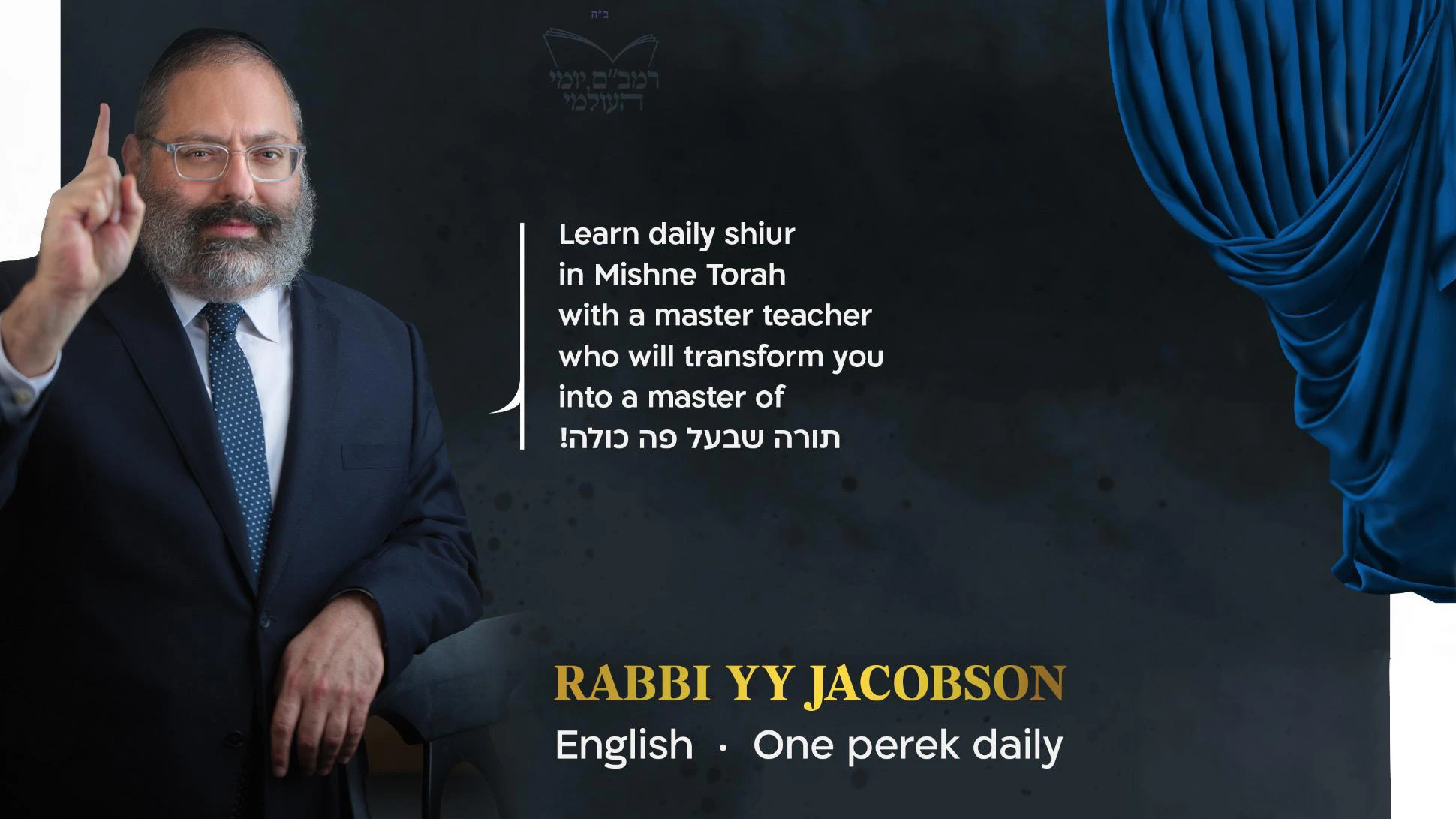
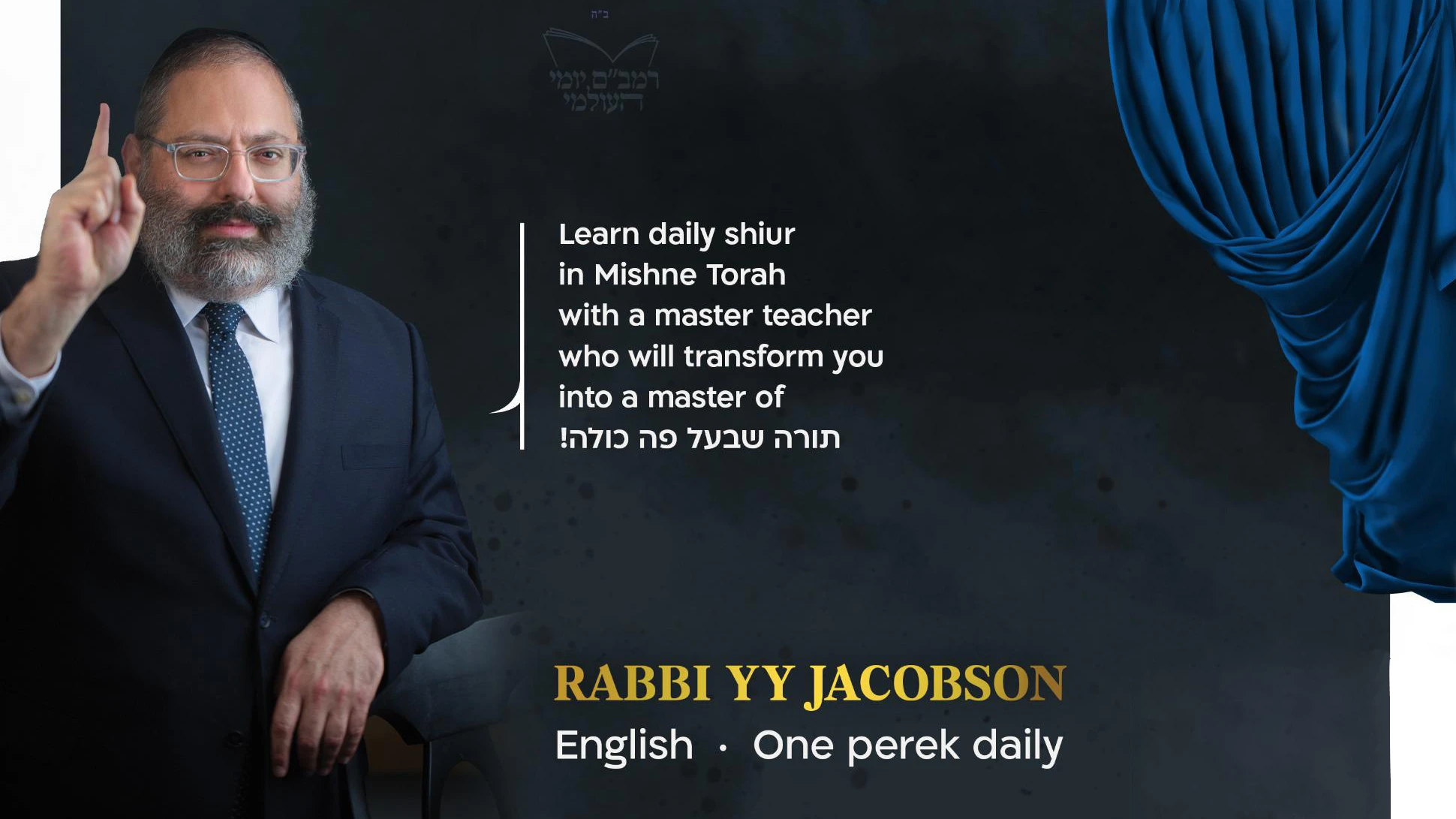
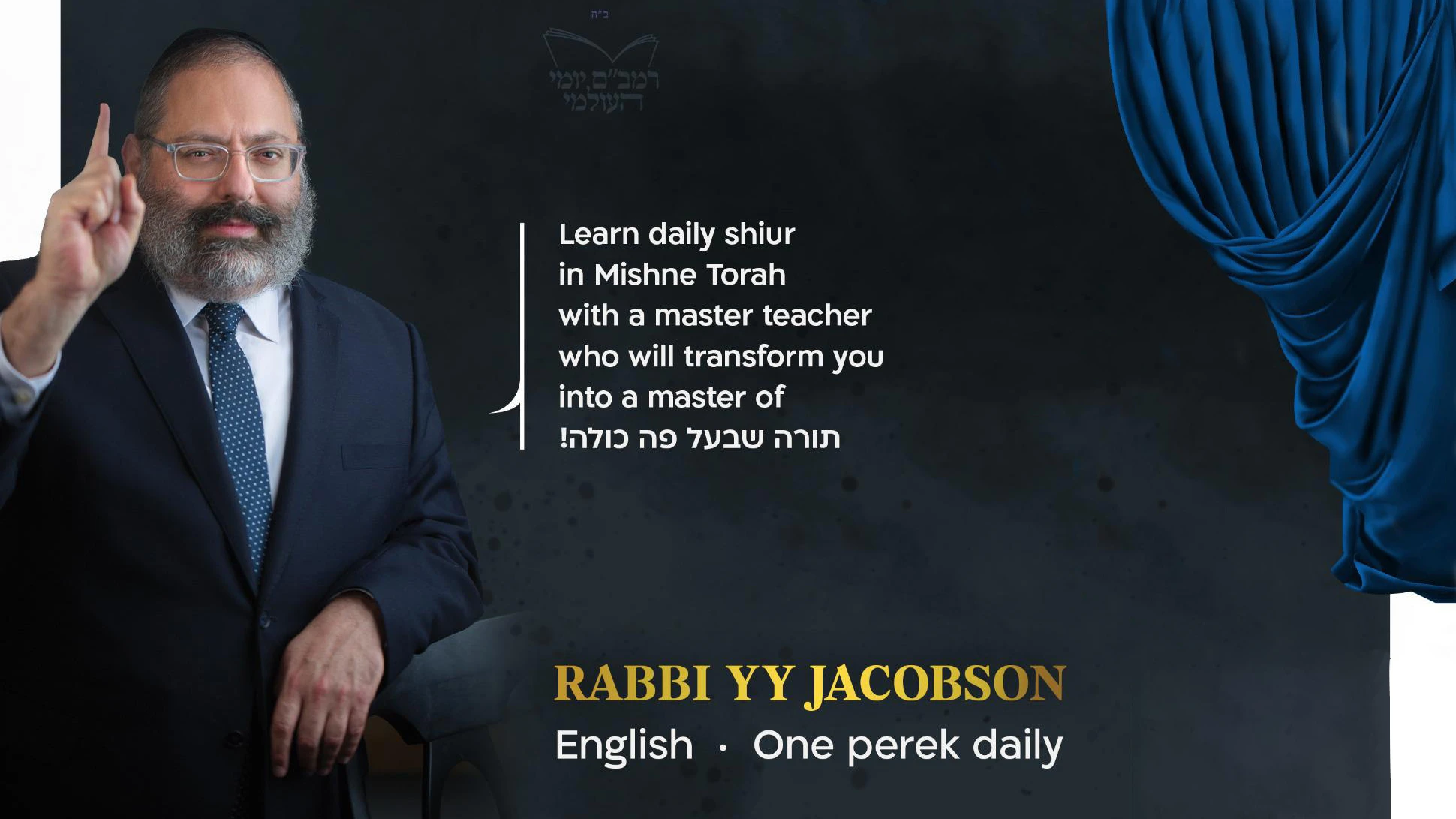
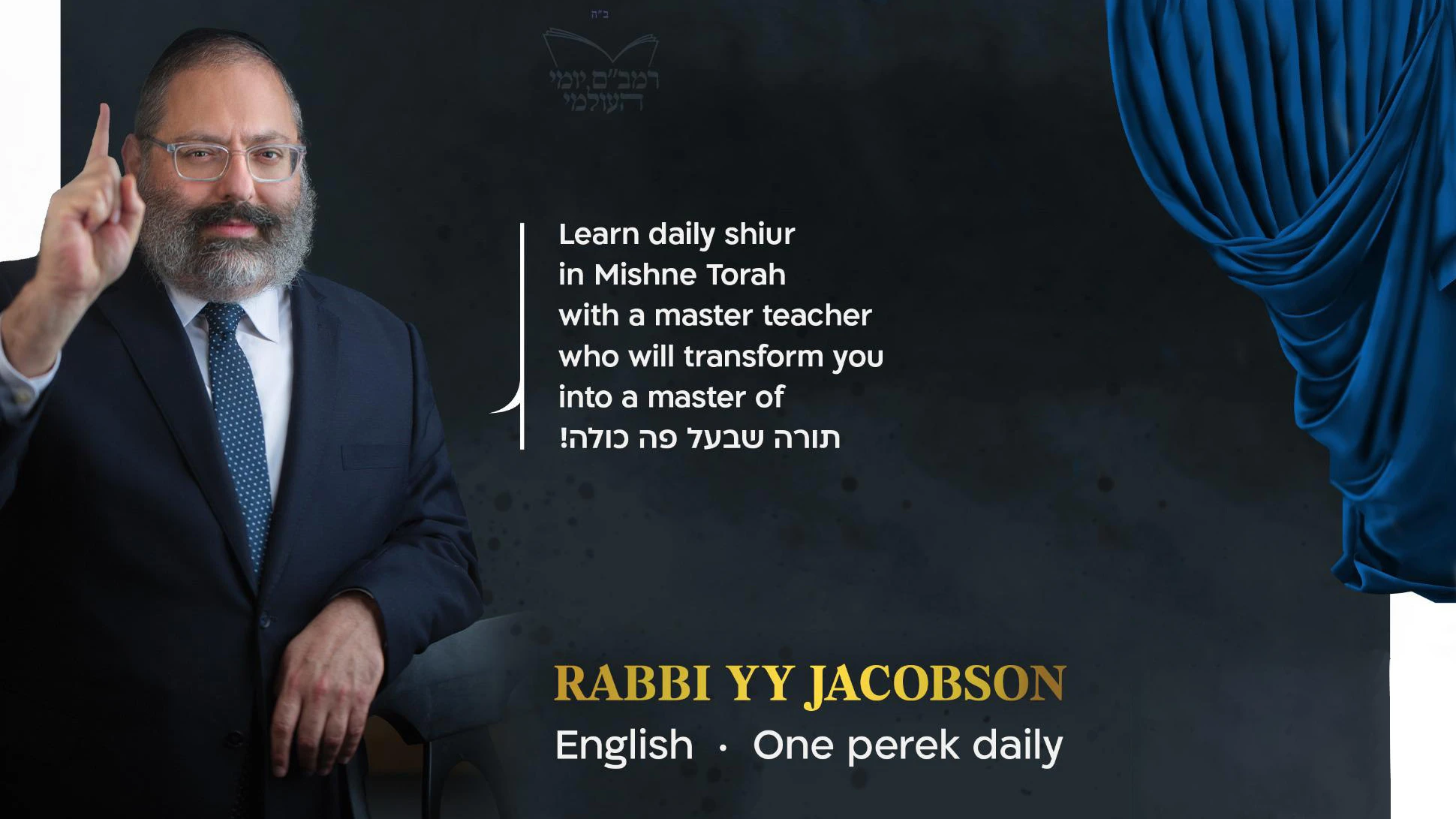
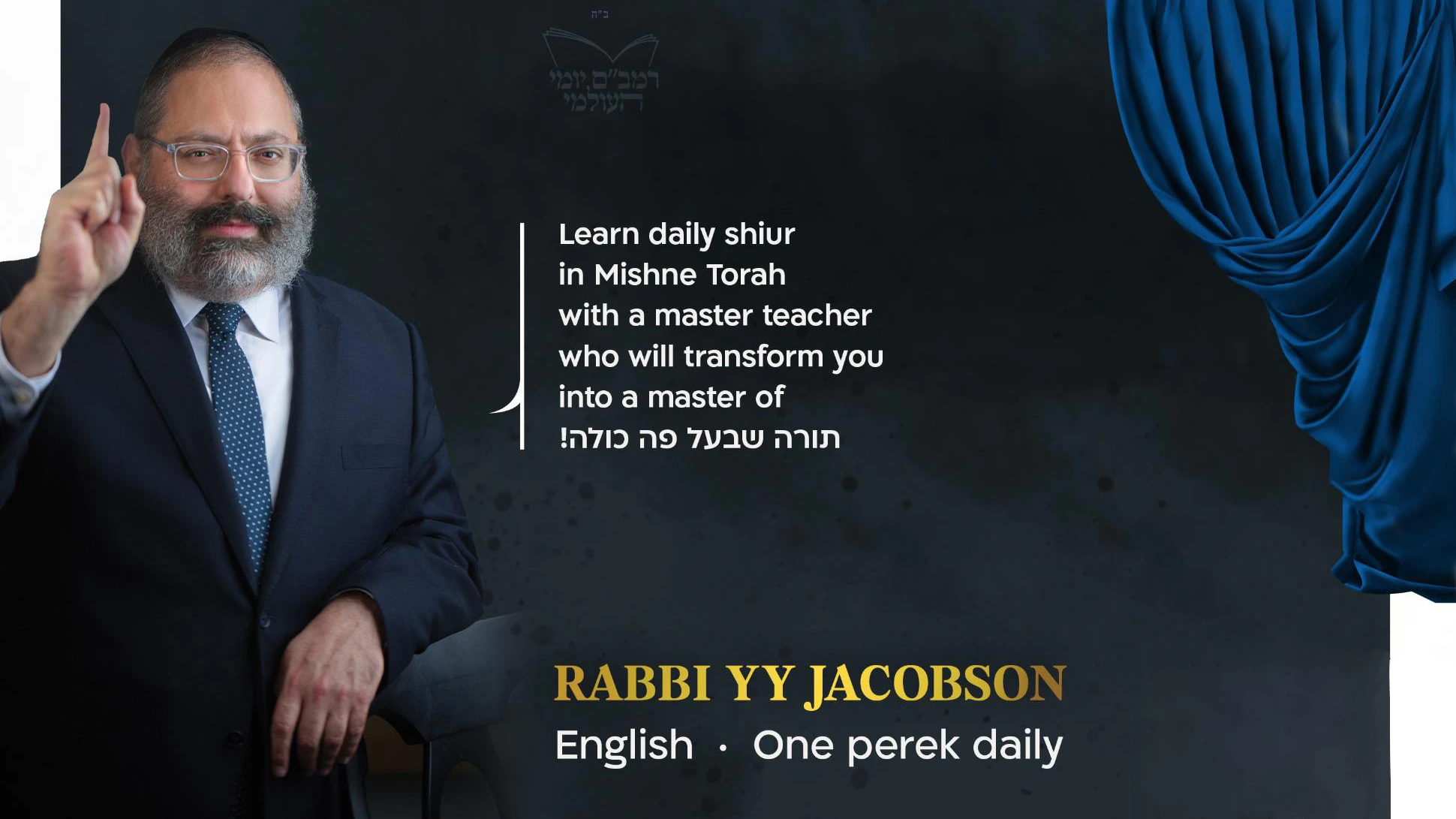
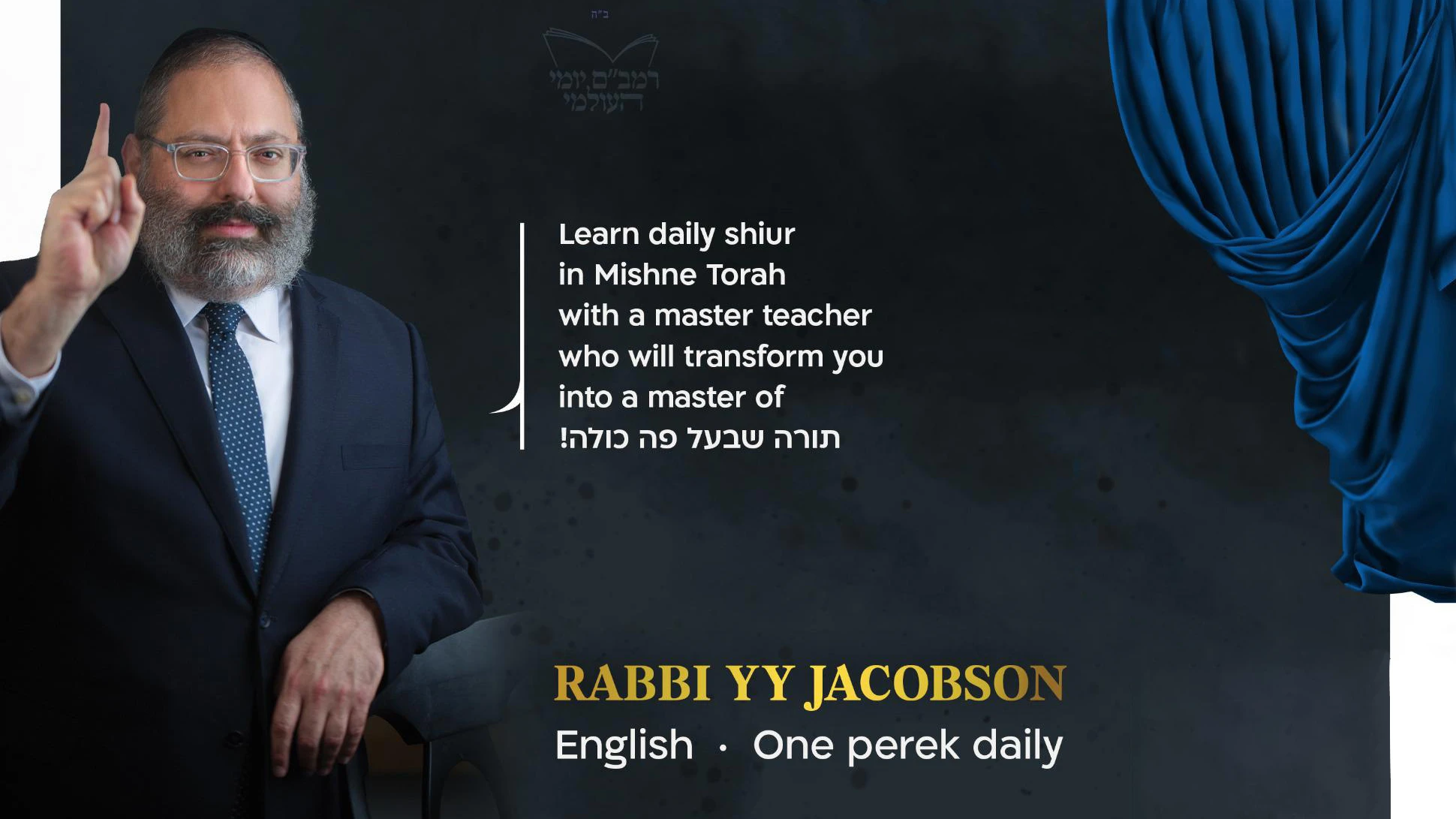
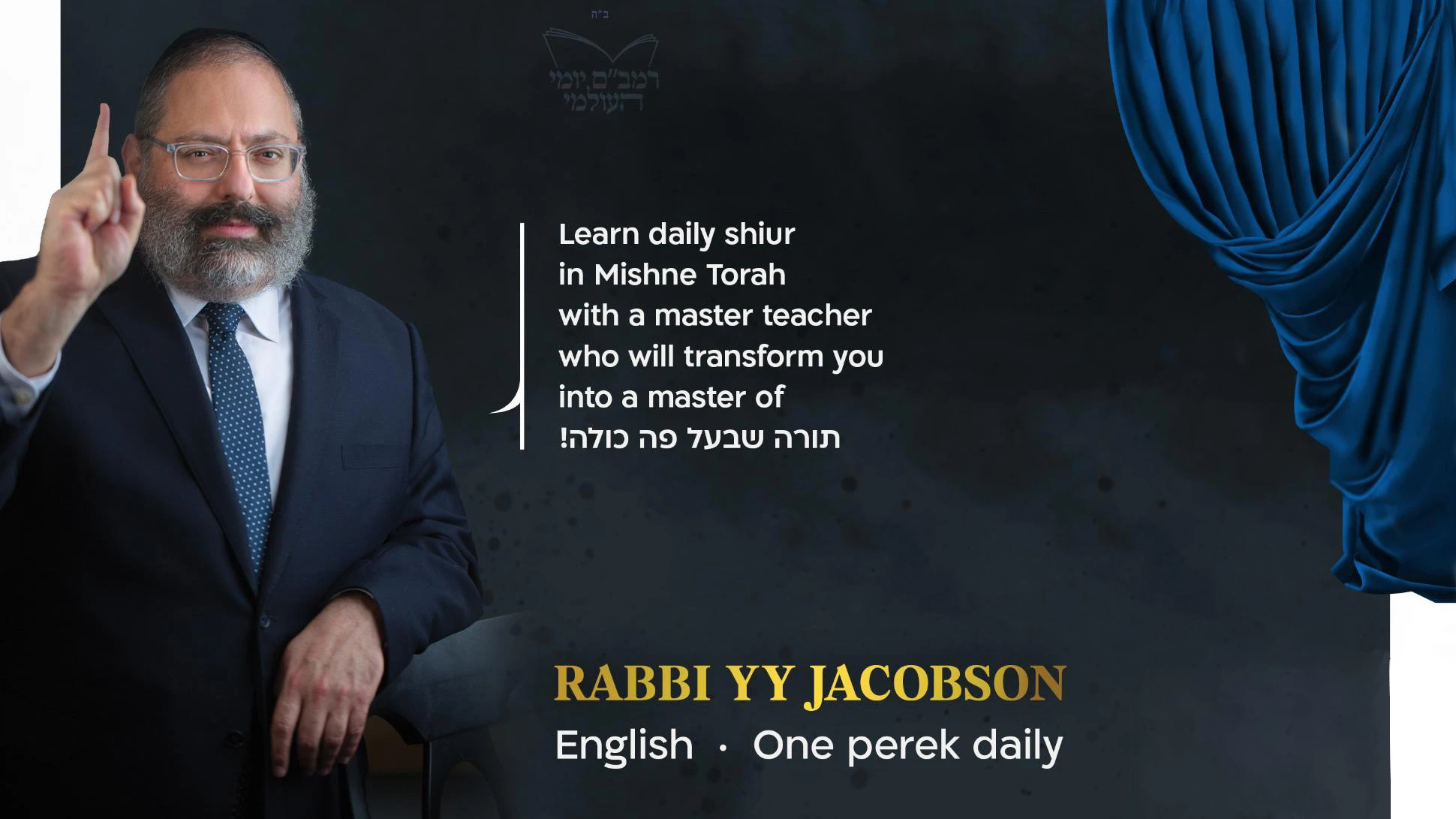

Please leave your comment below!
Sara Metzger -4 years ago
Questions from Chapter 2
Kaila C Stempel
Question for Rabbi YY
Not a question. This was so good! It was a teaching that can make life better.
++++++++++++++++++++++++++++++++++++++++++++++++++++++++++++
Mordechai Litzman
What would the Rambam say about bullying? I used to think that I should just let it go, but now I think that it is better tio stand up to it since otherwise the bully may continue bullying other people.
++++++++++++++++++++++++++++++++++++++++++++++++++++++++++++++
Moshe
Holy Ruziner
Story reminder
++++++++++++++++++++++++++++++++++++++++++++++++++++++++++++++++
Sara
Those who are morally ill
You said there are two kinds of people who are morally ill. Those who don’t know it and those who do know it. The ones who do know it hopefully will go to a soul doctor. But what about the ones who don’t know it?. They truly believe that bitter is sweet and sweet is bitter, etc. How are they healed?
++++++++++++++++++++++++++++++++++++++++++++++++++++++++++++++++++
Moshe
The ever expanding DSM categories for mental health
The "Bible" of mental health professionals is the DSM with succeeding numbers. This "gold standard" lays out criteria for diagnosis, the various mental illnesses and conditions, treatment, meds, etc.
The problem is that insurance (and rich people) will pay for a professional and their services and meds and any treatment necessary ONLY if there is a DSM diagnosis, if there is an insurance "code" etc. The dx and code is key to getting them to pay.
That would be fine, but....
What used to be a character trait, e.g. shyness, is now given a diagnosis, a name, Asperger's, and therefore a DSM dx, an insurance code, and therefore funds will flow from the insurance company or government to all those who treat the condition. Giving a dx opens the door to a flow of funds and a parnassa.
Therefore the tendency is to increase the range of diagnoses, the range of DSM "illnesses", and so the system, especially the mental health system to continuously expand.
I mention this only because the Rambam refers us to "soul doctor" professionals but I opine that, unlike physical illnesses, this is often, but not always, a profession built upon a shaky foundation only possible in a relatively rich country and era.
++++++++++++++++++++++++++++++++++++++++++++++++++++++++++++++++++
Moshe
So who decides what's a "normal" character trait and what's "abnormal". Torah people and Torah based or secular professionals?
++++++++++++++++++++++++++++++++++++++++++++++++++++++++++++++++++++++++++++++++
MZ
Question for Rabbi YY
the nefesh can only be healed by people of high spiritual standing, but doctors dont have to live healthy -- bertand russel
++++++++++++++++++++++++++++++++++++++++++++++++++++++++++++++++++++++++++++++++
Anonymous
Halacha 7
daas umachshava
לאיהאאדםבעלשחוקומהתלות. הטורפירשבזמןהזה, שהאסורמשוםאבילות, אבלבזמןהמקדשמותר, אבללרמב"םאיןזהמפניאבילותרקמפניששחוקוקלותראשמרגילהאדםלידיעבירה. ומיהואפשרלחלקביןבעלשחוקהמבוארברמב"םכאן, דמיירישרגילבשחוקולכןאסורתמיד, ולמלאפיושחוקהאסוררקבזמןהזהדמייריבאקראי, ומ"מלאימלאפיושחוקוא"ש.
-----
(panim yafos)
sefer middos vedeos
ה"זמקבלאתכלהאדםבסברפניםיפות - מישאיננואדםעליון, רוחני, לאמבניעליה, אלאאדםפשוט, טבעי, מצויורגיל, הואאוהבאתעצמומטבעוואיננורוצהבטובתםשלאחריםאלאבטובתעצמו, "כייצרלבהאדםרעמנעוריו", וכבראמרוחז"לאדםקרובאצלעצמו (ראהנ"יפ"קדסנהדריןדףרע"ב, סנהדריןדףי', הליכותאלי' אותקי"ח, רבאלפסיונ"יפ"ודיבמותדףתנ"דע"א, שו"עאהע"זסי' י"זסעיףז', נחלתצביס"קט"ו, רבאלפסיונ"יפ"בדיבמותדףת"חע"ב, רשב"אבספר "תולדותאדם" תשובהקנ"ט). אלאשחכמיהמוסרוהמדותבאולשפראתמעשיוולשנותאתטבעוטיבוותכונתוונטעובלבואהבתאדםוהדאגהלטובתבניאדםוהצורךבטפולםובעניניחייהם, ואמרו (אבותפ"אמשנהט"ו) והוהמקבלאתכלהאדםבסברפניםיפות. והמקורהואמקורקדוש, בתורה, כךכתוב "ויראוירץלקראתםוכו' וישתחוארצהוכו' יוקחנאוכו' והשענותחתהעץ (בראשיתי"חב-ג') ורשב"יאומר: צרפתיתע"ישהאכילהאתאליהוזכתהלהחיותאתבנהוכו' א"ריהודהבראלעאי, אפילונרותופתילותהיהאליהומעבירממקוםלמקוםכדישלאיטריחלכלבריאה, ר"יברסימוןאמר, כימשלהאכלוהלאהיאוהואמשלואכלוכדכתיבותאכלהיאוהוא, הואוהיאכתוב, אלאעלידישקבלהאותובסברפניםיפותושמשתו, זכתהלהחיותאתבנה (שהש"רבפ' סמכוני) ואמרו: מלמדשאםנתןאדםלחברוכלמתנותטובותשבעולםופניוזעומות, מעלהעליוכאילולאנתןכלום, אבלהמקבלאתחברובסברפניםיפות, אפילולאנתןלוכלום, מעלהעליוכאילונתןלוכלמתנותטובותשבעולם" (אדר"נפ' ג' ועייןמדרשמשלי (פרשהט"ו) ובכתובות (דףקי"בע"ב) טובהמלביןשיניםחברויותרממשקהוחלב, רש"י, להראותפניםשוחקותלבניאדם, ובקדושין (דףל' ע"ב) ישמאכיללאביופסיוניוטורדומןהעולםוישמטחינוברחייםומביאולעוה"בעיי"ש.
++++++++++++++++++++++++++++++++++++++++++++++++++++++++++++++++++++++++++++
Anonymous
Halacha 3
והואגובההלבשאיןדרךהטובהשיהיהאדםעניובלבדאלאשיהיהשפלרוחותהיהרוחונמוכהמאד. בסוטה (ה.) דתלמידחכםצריךשיהיהבואחדמשמינישבשמיניתוהיינושצריךמעטגאוהשאזבניהעיריראיםממנוויכוללהוכיחםע"שברש"י, והרמב"םלאהביאדברזהשלבסוףמסקינן "לאמיניהולאמקצתיה" ואיןהיתרגםלשמיניתשבשמינית. והגר"אזצ"לפירששמותרלהתגאות "שמינישבשמינית" היינופסוקשמיניבפרשתוישלחשהיאפרשהשמינית, אמריעקבקטונתימכלהחסדים, הרישפירשבזכותעצמוולאבזכותאבותיו, רקבזהמותרשהטובותשכברקיבלאינוראוילהם, ויתקרבעצמובכךיותרלאלקינו, אבללפנישמקבלםיתלהויבקשבזכותאבותדוקאשהואכאפסואין. (daas umachshava)
The Tzemech Tzedek writes
+++++++++++++++++++++++++++++++++++++++++++++++++++++++++++++++++
Moshe
please realize that most of us need translation. It is, therefore, the. And overly long
+++++++++++++++++++++++++++++++++++++++++++++++++++++++++++++++++++
Anonymous
Halcha 4
ואמרולאמצאתילגוףטובאלאשתיקה
What is being added with' leguf'
ayen maharal
------
ואמרולאמצאתילגוףטובאלאשתיקה
What is being added with' leguf'
ayen maharal
------
++++++++++++++++++++++++++++++++++++++++++++++++++++++++++++++++++++++
Anonymous
Alaway remember to daven
+++++++++++++++++++++++++++++++++++++++++++++++++++++++++++++=
Moshe
please realize that most of us need translation. Therefore it is disrespectful.
++++++++++++++++++++++++++++++++++++++++++++++++++++++++++++++++++++=
Anonymous
What is the 1st step in the healing process
(from Rav moshe Shapiro based on my understanding)
A person needs to understand the situation one is in and he needs tochacha as the rambam says in hilchos teshuva
(4:2)" Admonishment leads to Teshuvah. When a person is informed about his sins and shamed because of them, he will repent."
He has to be embarrased and he needs to be put in his place that with his lifestyle he is removing himself from this world and you are guily and responsible to fix yourself. He has to reallze he is destroying his divine image. (rav chaim vital says that charachter traits are not mention in the torah becausde one without good charachter is not a 'bar daas' not someone who is subject to commandments) The sinner has to be told you are not a bar daas, you are running away from your purpose here, and your divine image, and that he needs to take responsibility, only then could he repent.
Since everyone wants to be the divine person he really is, this drive for his own honor will lead him to take responsibility and repernt. The soul of a person is called honor and honor is what keeps a person alive. It is said over from the great sage of slabodka that if one would remove every bit of honor from the person he would no longer be able to live. Without honor one cannot live and honor is what connects the soul to the body.
The embarrasment one feels will lead him to return to his true self. The honor that he was lacking throuh his improper conduct will lead him to his true place. He will regain control over his life and take action to be lead with his Intelect (daas)
... it is understood this has to be done properly. one cannot embarrass someone publicly. One has to provide him with the proper guidance and to show his great capabilities to rasie up his honor with bringing out his talents and unique qualities. Show him his tremendous potential if he fixes his ways. Describe to him the destruction that he will cause if he just leaves himself alone. The rebuke given has to be with a deep love and with being careful with his dignity. (especially in our generation where people are very sensitive) However, Tochacha, rebuke, is the only way. One could never take away even a little bit of the responsibility one has for oneself he is obligated to be a 'ben daas' (to act with intellect) This is the law and one cannot exempt himself from this.
... A person was made in the image of God which is his power of choice. If one says I cannot take it. I cannot handle my situation- it has to be revealed to him he is in the image of God and since this is so he cannot kill himself. One who does not have choice is not in the image of God. A perosn cannto give up willingly on this godliness that was given to him. Therfore we have a commandment to choose good and to choose life. (uvacharta etc.) It has to be clearly explained and emphasized a perosn always has choice in every situation that he is in and it his prohibited for him to losse his freedom of choice. One cannot hide behind the answer I did not choose this. I had no choice in the matter. Because one is always responsible for his own deeds. No one can escape from this except the 'shoteh' ( one who lost his mind completly and really has no control)
Those who heal souls only heal with the "daas" tha they teach to their patients. The explanation of the matter is one has to return his patient to the status of a "bar daas' . He has to show the patient his reflection in the mirror and the honor inside of him his inner core that is divine and this will help him take responsibility for himself to start acting with daas.
+++++++++++++++++++++++++++++++++++++++++++++++++++++++++++++++++++++++++
Sara
Chapter 1 thoughts, questions, comments …
Personal development – could what Rambam says in Chapter 1, “each and every man possesses many character traits” also mean that one person could have a mixture of different extremes, a combination of different traits, like a particular person could be very angry, but also generous and/or humble at the same time? Do the tendencies we are born with guarantee (as I say the word guarantee I know that there are no guarantees), that we will be that way, or do we have to develop them to become that way? Bottom line on all of this I think ?? the huge element of free will, which suggests that we can change if we want to, if we work at it, if it’s important to us. I’ve always wondered about the name Gd gave to Jacob, beside Israel, he called him Yeshurun in Shacharits. Comes from the Hebrew word yashar -- means straight, upright, yes? As I listened to and read Chapter 1 it came back to me, and I’m wondering now if Jacob’s personality was one which Rambam is describing. E.g. live “the straight path” (the righteous path).
Reply to this comment.Flag this comment.